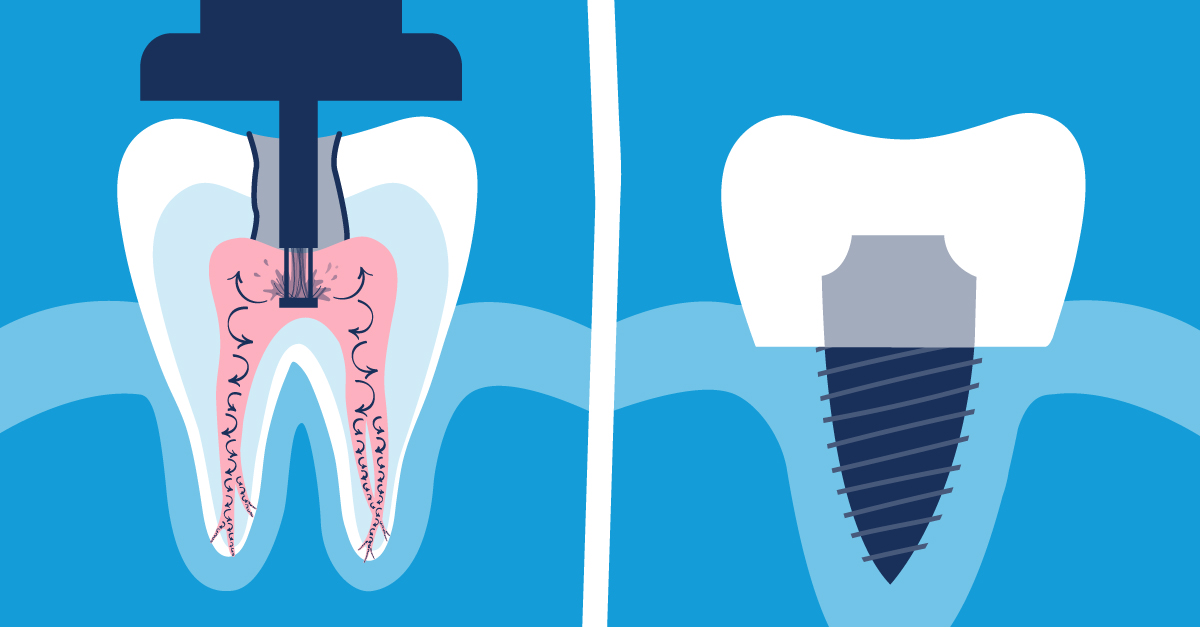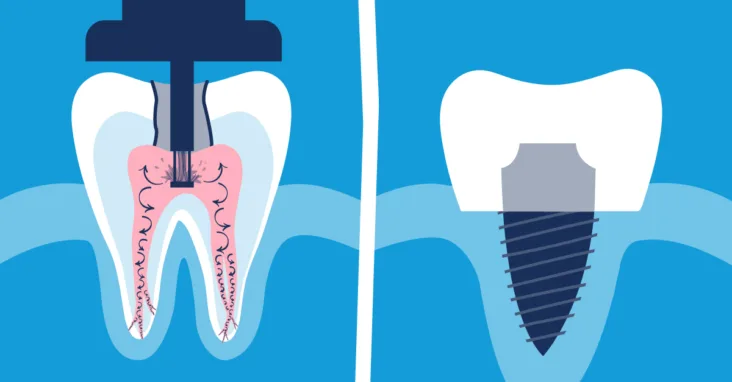If you’re facing the dreaded prospect of a root canal, you may be concerned about the cost and wondering if there are any affordable alternatives that can still ensure your dental health. Well, good news! In this article, we’re going to delve into the world of affordable root canal alternatives that can help you maintain your dental health without breaking the bank. So, let’s explore some cost-effective options that can give you the smile you deserve without emptying your wallet.
When it comes to dental procedures, the words “affordable” and “root canal” don’t often go hand in hand. But fear not, my friend! There are alternatives out there that can provide relief for your dental issues without draining your savings. We understand that the thought of a root canal can be daunting, both financially and emotionally. That’s why we’re here to guide you through the alternatives that are not only budget-friendly but also effective in preserving your dental health. So, let’s buckle up and embark on a journey to uncover the affordable options that can bring a smile back to your face.
Are you in need of a root canal but worried about the cost? Don’t despair! There are affordable alternatives that can help you maintain your dental health without breaking the bank. Instead of a traditional root canal, you may consider options like tooth extraction followed by a dental bridge or implant. These alternatives can be more cost-effective while still ensuring the functionality and aesthetics of your smile. Consult with your dentist to determine which option is best for you.

Exploring Affordable Root Canal Alternatives for Dental Health
Root canals are a common dental procedure that can be quite costly. Many people may find themselves in a situation where they need a root canal but are unable to afford the traditional treatment. However, there are alternative options available that can be more affordable while still providing effective dental health care. In this article, we will explore some of these alternatives and discuss their benefits and considerations.
1. Dental Crowns
Dental crowns are a popular alternative to root canals for addressing dental issues such as tooth decay and damage. A dental crown is a custom-made cap that is placed over a damaged tooth, restoring its shape, strength, and functionality. This can help alleviate the need for a root canal by protecting and strengthening the tooth. Dental crowns can be made from various materials, including porcelain, metal, or a combination of both.
One of the main benefits of dental crowns is that they are less invasive and typically require less time for the procedure compared to a root canal. Additionally, they can be more cost-effective, making them a viable alternative for those on a budget. However, it’s important to note that dental crowns may not be suitable for all cases, especially if the tooth’s pulp is infected or severely damaged.
1.1 Benefits of Dental Crowns
– Dental crowns can restore the appearance and functionality of damaged teeth
– They are less invasive and require less time compared to root canals
– Dental crowns can be more affordable than traditional root canal treatments
While dental crowns can be a suitable alternative for some individuals, it’s essential to consult with a dental professional to determine if this option is appropriate for your specific dental needs. They will be able to evaluate your condition and provide expert advice on the best course of treatment.
2. Pulp Capping
Pulp capping is another alternative to traditional root canals that can help preserve the health of the tooth and avoid more invasive treatments. This procedure involves placing a protective material directly over an exposed or damaged pulp to promote healing and prevent infection. Pulp capping is typically recommended for cases where the pulp is not severely infected or damaged.
There are two types of pulp capping: direct and indirect. Direct pulp capping is performed when the pulp is only partially exposed, while indirect pulp capping is done when the pulp is not exposed but is at risk of infection. Both methods aim to stimulate the tooth’s natural healing abilities and prevent the need for a root canal.
2.1 Benefits of Pulp Capping
– Pulp capping can help avoid the need for a root canal in certain cases
– It is a less invasive procedure compared to traditional root canal treatments
– Pulp capping can help preserve the natural tooth structure
It’s important to note that the success of pulp capping depends on various factors, such as the extent of the pulp damage and the overall oral health of the individual. Consulting with a dental professional is crucial to determine if pulp capping is a viable alternative for your specific dental condition.
3. Apicoectomy
An apicoectomy, also known as root-end surgery, is a surgical alternative to traditional root canals that involves removing the infected or damaged tip of a tooth’s root. This procedure is typically recommended when a root canal treatment has failed or when there is persistent infection or inflammation in the tooth’s root.
During an apicoectomy, the endodontist will access the root of the tooth through a small incision in the gum tissue. They will then remove the infected or damaged tissue and seal the end of the root to prevent further infection. This can help alleviate pain and discomfort while preserving the natural tooth.
3.1 Benefits of Apicoectomy
– Apicoectomy can address persistent infections or inflammation in the tooth’s root
– It is a surgical alternative to traditional root canals
– The procedure aims to preserve the natural tooth structure
Apicoectomy is a specialized procedure that requires the expertise of an endodontist. Consulting with a dental professional is essential to determine if an apicoectomy is the right alternative for your specific dental condition.
4. Dental Implants
Dental implants are a long-term solution for replacing missing teeth and can also be considered an alternative to root canals. Unlike root canals, dental implants involve removing the damaged tooth entirely and replacing it with an artificial tooth root and crown. This provides a permanent and natural-looking solution for restoring the appearance and functionality of the tooth.
The process of getting dental implants usually involves multiple steps, including the surgical placement of the implant and the attachment of the crown. While dental implants may initially be more expensive than root canals, they can be a worthwhile investment in the long run due to their durability and longevity.
4.1 Benefits of Dental Implants
– Dental implants provide a permanent solution for missing teeth
– They restore the appearance and functionality of the tooth
– Dental implants are durable and long-lasting
It’s important to note that dental implants may not be suitable for everyone, as the procedure requires a healthy jawbone to support the implant. Consulting with a dental professional is crucial to determine if dental implants are a viable alternative for your specific dental condition.
Conclusion
Exploring affordable root canal alternatives for dental health is essential for individuals who may not have the means to undergo traditional root canal treatments. Dental crowns, pulp capping, apicoectomy, and dental implants are all viable options that can provide effective dental care while being more budget-friendly. Consulting with a dental professional is crucial to determine the best alternative for your specific dental condition. Remember, prioritizing dental health is important for overall well-being, and there are alternatives available to suit different needs and budgets.
Key Takeaways: Exploring Affordable Root Canal Alternatives for Dental Health
- Consider dental fillings as a cost-effective alternative to root canals.
- Explore dental crowns as a way to preserve your tooth and avoid a root canal.
- Discuss tooth extraction and implant options with your dentist.
- Explore the option of pulpotomy, a partial root canal procedure for children.
- Maintain good oral hygiene to prevent the need for expensive dental procedures.
Final Thoughts
When it comes to dental health, finding affordable alternatives to root canals is a top priority for many people. After exploring various options, it’s clear that there are several viable alternatives that can help alleviate the need for costly and invasive procedures. From holistic treatments to preventive care, taking a proactive approach to dental health can make a world of difference.
One of the most effective alternatives to root canals is holistic dentistry. This approach focuses on treating the entire body, not just the teeth. By addressing the underlying causes of dental issues, such as poor nutrition or chronic inflammation, holistic dentists aim to promote overall wellness. Incorporating natural remedies and techniques, such as ozone therapy or laser treatments, can effectively treat dental problems without the need for a root canal.
Another affordable option is preventive care. By maintaining good oral hygiene practices, such as regular brushing, flossing, and dental check-ups, you can prevent the need for invasive treatments. Additionally, implementing lifestyle changes like a healthy diet and reducing stress can significantly improve your dental health. It’s important to remember that prevention is always better than cure.
In conclusion, exploring affordable root canal alternatives for dental health is a smart and proactive approach. Whether you opt for holistic dentistry or focus on preventive care, there are options available that can help you maintain a healthy smile without breaking the bank. By taking control of your dental health and prioritizing natural remedies and preventive measures, you can avoid the need for costly and invasive root canal procedures. Remember, a healthy smile is a priceless asset that deserves your attention and care.









